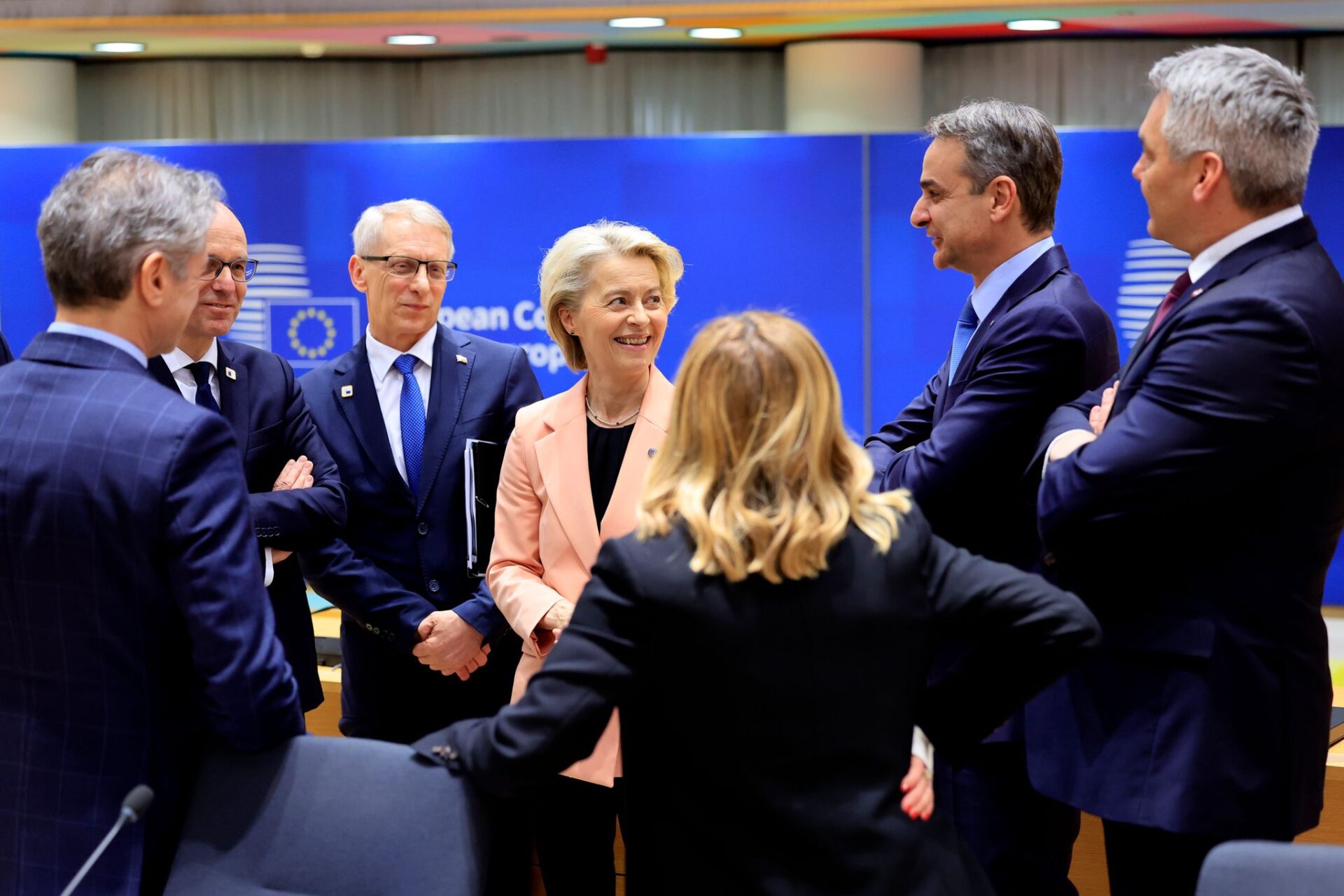Positive response to the intervention of Prime Minister Kyriakos Mitsotakis to take measures against unfair practices of multinationals that result in identical or similar products being sold at different prices in EU countries, was given by the President of the European Commission, Ursula von der Leyen.
This is a significant development for the Greek market and consumers, as Mr. Mitsotakis in his letter to Ms. von der Leyen had pointed out the problem of “different prices” set by multinational groups for the same products at the expense of consumers, especially in smaller population countries.
In her reply letter, Ms. von der Leyen acknowledges the problem and states that she has instructed the Commission services to collect data from all countries in order to take initiatives and strengthen the EU’s legal and regulatory framework.
Specifically, a research process for the unfair practices of multinational companies, which Mr. Mitsotakis had reported, that result in identical or similar products being sold at different prices within the EU, starts the European Commission, as stated in a letter to the Prime Minister by the President of the European Commission.
Furthermore, in her letter, which is a response to the letter sent to her by Mr. Mitsotakis in May, Ms. von der Leyen informs Mr. Mitsotakis that she has instructed the Commission services to collect data from surveys, studies, and analyses on the issue, in close cooperation with the authorities of the member states.
Based on the data that will emerge, Brussels will start a dialogue with all involved parties, while corporate practices and regulatory rules that may favor the emergence of Geographic Supply Constraints, namely barriers to the free flow of goods in certain EU countries, will be examined.
Additionally, in her letter to the Prime Minister, Ms. von der Leyen, in view of a very likely second term in the Commission, stresses that this issue will be on the European Commission’s political agenda for the next European cycle, in order to consider possible measures against Geographic Supply Constraints.
The research process may lead to an enrichment of the legal and regulatory “arsenal” currently available to the EU, as Ms. von der Leyen notes that the issues raised by the Prime Minister may lie outside the existing regulatory framework. The findings “will allow us to consider different options in areas such as competition or single market rules” with the aim of “tackling such unfair practices,” she notes.
Ms. von der Leyen thanks Mr. Mitsotakis for his “valuable contribution” and the solutions he proposed in his letter, expressing confidence that the research process will determine the next steps so that all European citizens “can equally enjoy the benefits of the single market, wherever they reside.”
The Commission welcomes Greece’s and other member states’ commitment to seeking solutions to the issue of geographical supply constraints and the single market.
In response to a question about the European Commission President Ursula von der Leyen’s response to Prime Minister Kyriakos Mitsotakis’s letter on the issue, the Commission’s spokesperson Johanna Bärnsel, stated that the Commission received the letter from Kyriakos Mitsotakis in May and Ursula von der Leyen responded last Friday. She noted that geographical supply constraints imposed by large manufacturers are of concern as they prevent retailers from fully benefiting from the single market, while creating price disparities among consumers within the EU.
The spokesperson added that the Commission has taken strong measures to address some such practices that fall under competition rules and that in May a fine of more than 300 million euros was imposed.
“As correctly observed by Greece and other member states, there are concerns about fragmentation of the single market some of which cannot be addressed under competition rules because they are not covered by the scope of competition rules,” she said, emphasizing that the European Council in its conclusions on the future of the single market called on the Commission to address the issue for the benefit of consumers and businesses.
She pointed out that the Commission will collect data from competition surveys, other studies, and analyses together with the member states and the results of this fact-finding mission will inform the next Commission on possible policy measures to address unjustified geographical supply constraints. (05/07/2024)
 go to the original language article
go to the original language article
